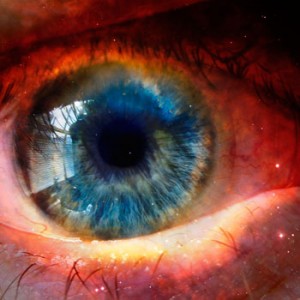 A dictionary will tell us that metaphysics is the branch of philosophy that investigates the nature and problems of ultimate reality including the study of being (ontology). Psychology is the science of mental processes and behavior. We can see that Simple Reality links the two in an attempt to arrive at a narrative that will empower sustainable human behavior with a profound understanding of ultimate reality. Central to this endeavor is the connection between the source of human creativity (the implicate order) and intuition (inner wisdom or feeling) that provides the conduit that connects each one of us to what Deepak Chopra calls our “infinite possibilities.”
A dictionary will tell us that metaphysics is the branch of philosophy that investigates the nature and problems of ultimate reality including the study of being (ontology). Psychology is the science of mental processes and behavior. We can see that Simple Reality links the two in an attempt to arrive at a narrative that will empower sustainable human behavior with a profound understanding of ultimate reality. Central to this endeavor is the connection between the source of human creativity (the implicate order) and intuition (inner wisdom or feeling) that provides the conduit that connects each one of us to what Deepak Chopra calls our “infinite possibilities.”
Psychologist’s often will not agree with the definitions that we assign to the key terms in Simple Reality but James Hillman’s definition of intuition is one that most of us can accept. “In psychology intuition means ‘direct and unmediated knowledge,’ immediate or innate apprehension of a complex group of data … Intuitions ‘occur to a person without any known process of cogitation or reflective thinking.’ Intuition is also called upon for explaining creativity and genius …”
Notice how intuition transcends traditional intellectual processes. In P-B, the intellect is often venerated as the god’s of the past were and it has been placed far too high on Mt. Olympus. As a god it is impotent when faced with the problem of how to transcend the effects of the old story, the creation of a new identity for humankind and ultimately how to lead the global village in establishing a sustainable community. For that we need our own inner wisdom, for that we need intuition.
We have learned that Albert Einstein intuitively arrived at the insight that we need not fear life in this universe. This gift from one of our greatest geniuses came from a man who had a difficult time adjusting to the process of education that grew out of P-B. Einstein wrote of his middle school that “I preferred to endure all sorts of punishment rather than to learn gabble by rote.” He was not alone among some of humanities most gifted scientists and mystics. It is not surprising that the highest drop-out rate in our schools occurs among the so-called “gifted and talented” students.
Education in P-A would value and nurture the gifted rather than push them out of school. What has the school experience been like for some of our most creative and divergent thinkers.
- Richard Feynman, winner of the Nobel Prize in physics called his early school “an intellectual desert.”
- Ghandi said of his schooldays that “they were the most miserable years of his life.”
- Thomas Edison said, “I was always at the foot of the class.”
- Pablo Picasso refused to do anything in school but paint and left at age ten.
As long as the dominant worldview continues to turn reality upside down with intuition devalued and the intellect elevated all of our institutions will experience failure. The science of psychology is too limited in its ability to define human potential to support transformation and transcendence. Only a story based on our natural state of being and our interconnection with all of Reality will unlock the promise of a healthy human community.
___________________________________________________________
References and notes are available for this essay.
Find a much more in-depth discussion in books by Roy Charles Henry:
Who Am I? The Second Great Question Concerning the Nature of Reality
Where Am I? The First Great Question Concerning the Nature of Reality
Simple Reality: The Key to Serenity and Survival


